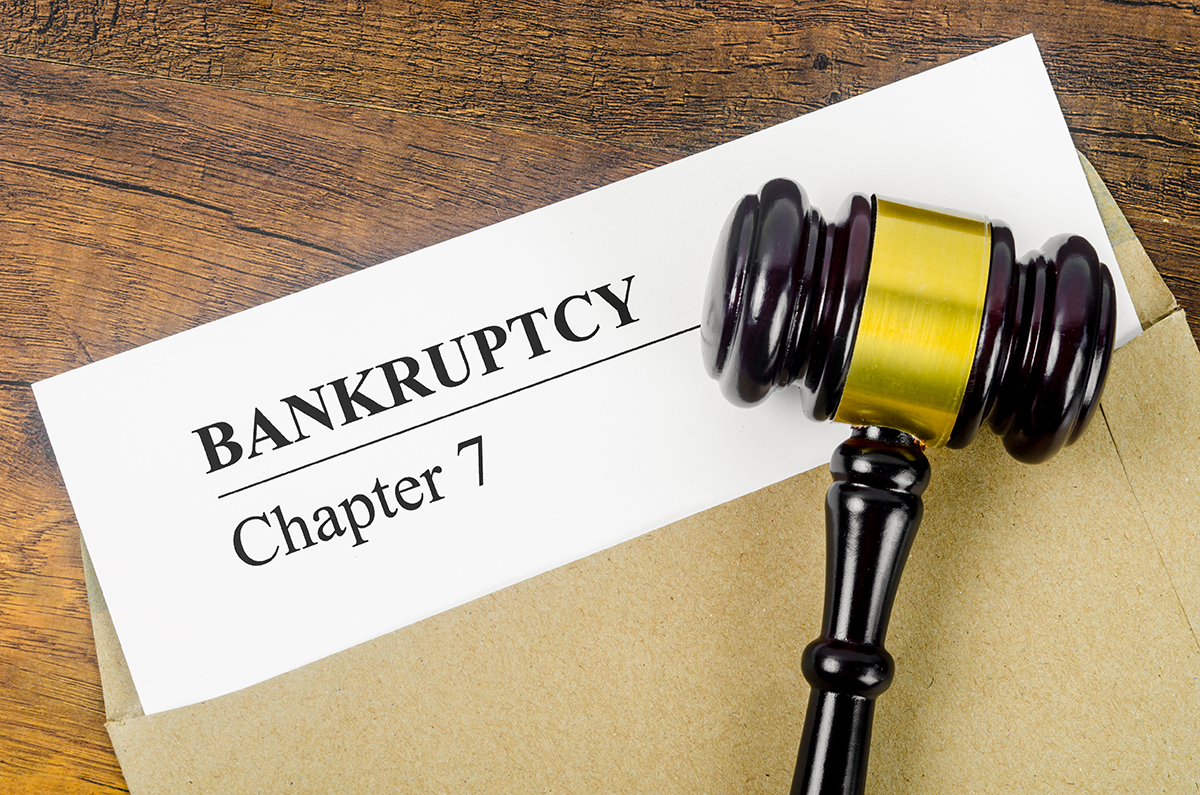Should Marriage or Bankruptcy Be Prioritized?
Facing the weight of overwhelming debt can feel like standing at the edge of a precipice, uncertain of the next step. The prospect of marriage, a union meant to bring joy and shared dreams, may seem daunting when financial burdens loom large.
The question arises: should you seek a fresh financial start through bankruptcy before embracing the commitment of marriage, or is it wiser to enter this new chapter together, confronting challenges as a united front?
This decision is deeply personal, intertwining emotions of hope, fear, and the desire for a secure future. The path you choose will shape your financial landscape and influence the foundation of your relationship.
As of September 2024, the total number of filings in the US was 504,112, which includes 481,350 non-business filings. [1]
Understanding Bankruptcy and Marriage
Bankruptcy is a legal process that provides individuals with relief from overwhelming debts, allowing for either the elimination or structured repayment of those debts under the protection of the bankruptcy court.
Types
- Chapter 7 (Liquidation): This type involves the liquidation of non-exempt assets to repay creditors, with most remaining unsecured debts being discharged, offering a fresh financial start.
- Chapter 13 (Reorganization): Designed for individuals with regular income, this chapter allows for the development of a repayment plan to pay off all or part of debts over three to five years, enabling debtors to retain their assets.
Marriage and Finances
- Financial Integration: Marriage often leads to the merging of financial responsibilities and assets. This means that assets and debts acquired during the marriage are considered jointly owned, regardless of who incurred the debt or whose name is on the asset.
- Debt Responsibility: Debts incurred during the marriage are typically shared equally between spouses. This means that even if one spouse is solely responsible for a debt, both may be liable for repayment.

Filing for Bankruptcy Before Marriage
Advantages
- Financial Independence: Addressing personal debts prior to marriage ensures that your partner is not responsible for your pre-existing financial obligations. This separation can help maintain a clear financial boundary between spouses.
- Simplified Financial Integration: Entering marriage without the complexities of existing debts allows for a more straightforward merging of finances, enabling both partners to start their shared financial journey on equal footing.
Considerations
- Impact on Credit: Bankruptcy can remain on your credit report for up to 10 years, potentially affecting future joint financial endeavors. This may influence your ability to secure joint loans or mortgages.
Filing for Bankruptcy After Marriage
Filing bankruptcy after marriage can have distinct advantages and considerations that differ from filing individually or before marriage.
Advantages
- Joint Debt Relief: If both spouses share substantial debts, filing jointly can discharge these obligations, providing a fresh financial start for both. This approach simplifies the process and ensures that both partners are relieved from shared debts.
- Cost Efficiency: A joint bankruptcy filing can be more cost-effective than filing separately, as it consolidates legal fees and court costs into a single proceeding. This efficiency can be beneficial for couples seeking to minimize expenses during a challenging financial period.
Considerations
- Impact on Credit: A joint bankruptcy filing will appear on both spouses' credit reports, which could make it difficult to obtain loans or credit cards in the future.
- Asset Implications: Assets acquired during the marriage may be considered joint property, potentially subject to creditors.
Deciding when to file for bankruptcy in relation to marriage is a significant decision that requires careful consideration of your unique financial situation and future goals. Consulting with a financial advisor or bankruptcy attorney can provide personalized guidance tailored to your circumstances.

Legal and Financial Implications
Understanding your state laws and more about how assets are treated both before and during marriage can help you make your decision regarding the best time to file.
State Laws: Community Property vs. Common Law States
-
Community Property States:
In community property states, assets and debts acquired during the marriage are considered jointly owned by both spouses, regardless of whose name is on the title. This means that in the event of bankruptcy, both spouses' assets and debts are subject to the proceedings. States that follow community property laws include California, Texas, and Washington. -
Common Law States:
In contrast, common law states treat assets and debts acquired during the marriage as belonging to the individual who earned or incurred them. Therefore, if only one spouse files for bankruptcy, the other spouse's assets and debts are generally not affected by the bankruptcy proceedings.
Asset Division: Pre-Marriage vs. Marriage Assets
-
Pre-Marriage Assets:
Assets owned by either spouse before the marriage are typically considered separate property and are not subject to division in bankruptcy proceedings. However, if these assets are commingled with marital assets or if their value has increased due to joint efforts, they may be considered marital property. -
Marriage Assets:
Assets acquired during the marriage are generally considered joint property and are subject to division in bankruptcy proceedings. This includes income earned during the marriage, property purchased with that income, and debts incurred jointly.
Case Studies
Understanding the real-life implications of filing for bankruptcy before or after marriage can provide valuable insights. Below are illustrative examples highlighting the outcomes of each approach:
Case Study 1: Filing for Bankruptcy Before Marriage
- Scenario: John, burdened with significant credit card debt, decides to file for Chapter 7 bankruptcy prior to marrying his fiancée, Emily.
- Outcome: By filing individually before marriage, John's debts are discharged, and Emily's financial standing remains unaffected. This proactive step allows them to start their marriage without the complications of pre-existing debts. However, John’s credit score is impacted, which may affect their ability to secure joint credit in the near future.

Case Study 2: Filing for Bankruptcy After Marriage
- Scenario: Sarah and Mark, recently married, face mounting medical bills and credit card debt. They decide to file for Chapter 13 bankruptcy jointly.
- Outcome: Filing jointly allows them to consolidate their debts and create a manageable repayment plan. While this approach simplifies the process, both Sarah's and Mark's credit scores are affected, and they must adhere to the repayment plan's terms. Additionally, their combined income is considered, which may influence the repayment amount.
Navigating the complexities of bankruptcy in the context of marriage requires careful consideration and professional guidance. Contact Frego Law’s bankruptcy attorneys to schedule a free consultation and take the first step toward financial stability.
Source:
[1] Bankruptcy Filings Statistics. (n.d.). United States Courts. https://www.uscourts.gov/data-news/reports/statistical-reports/bankruptcy-filings-statistics/




